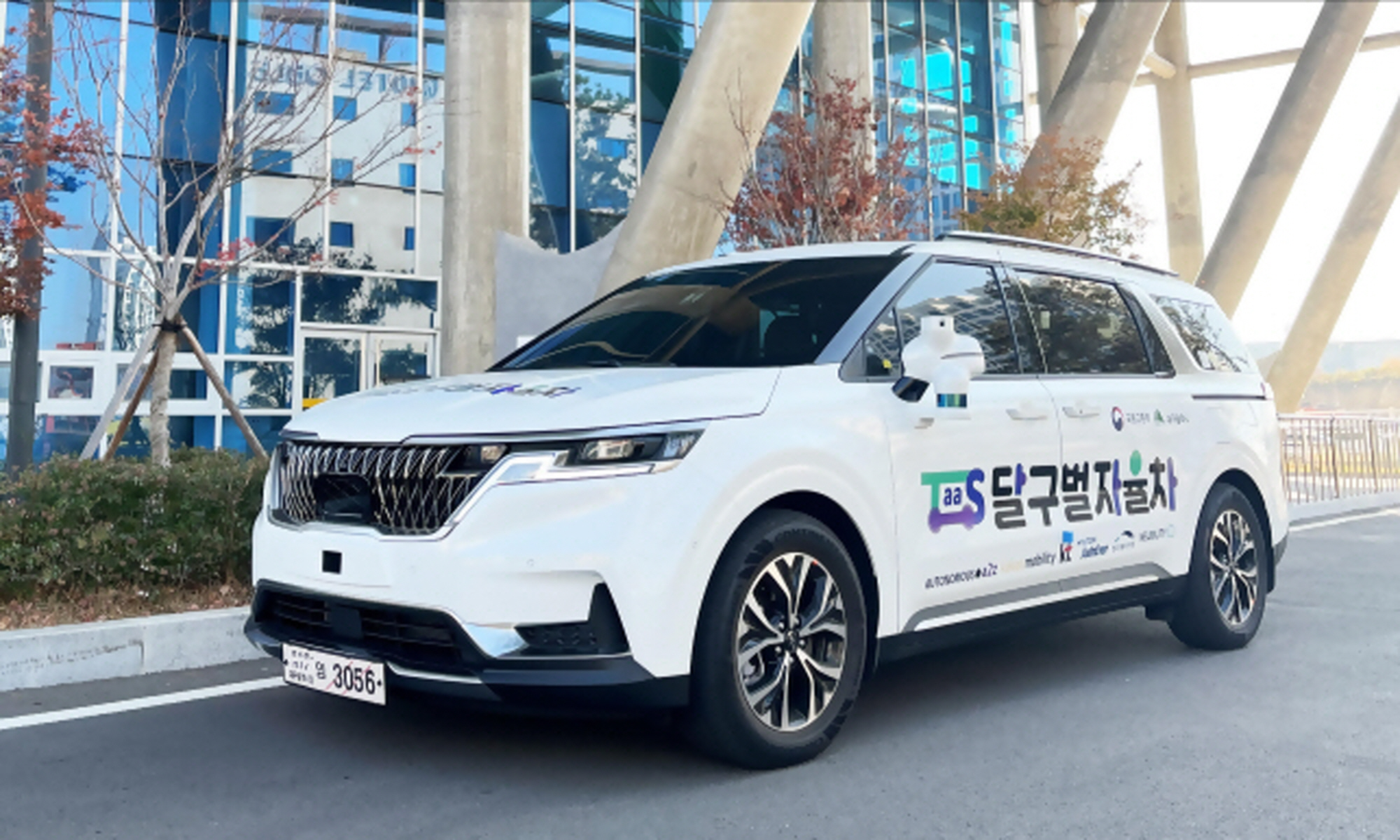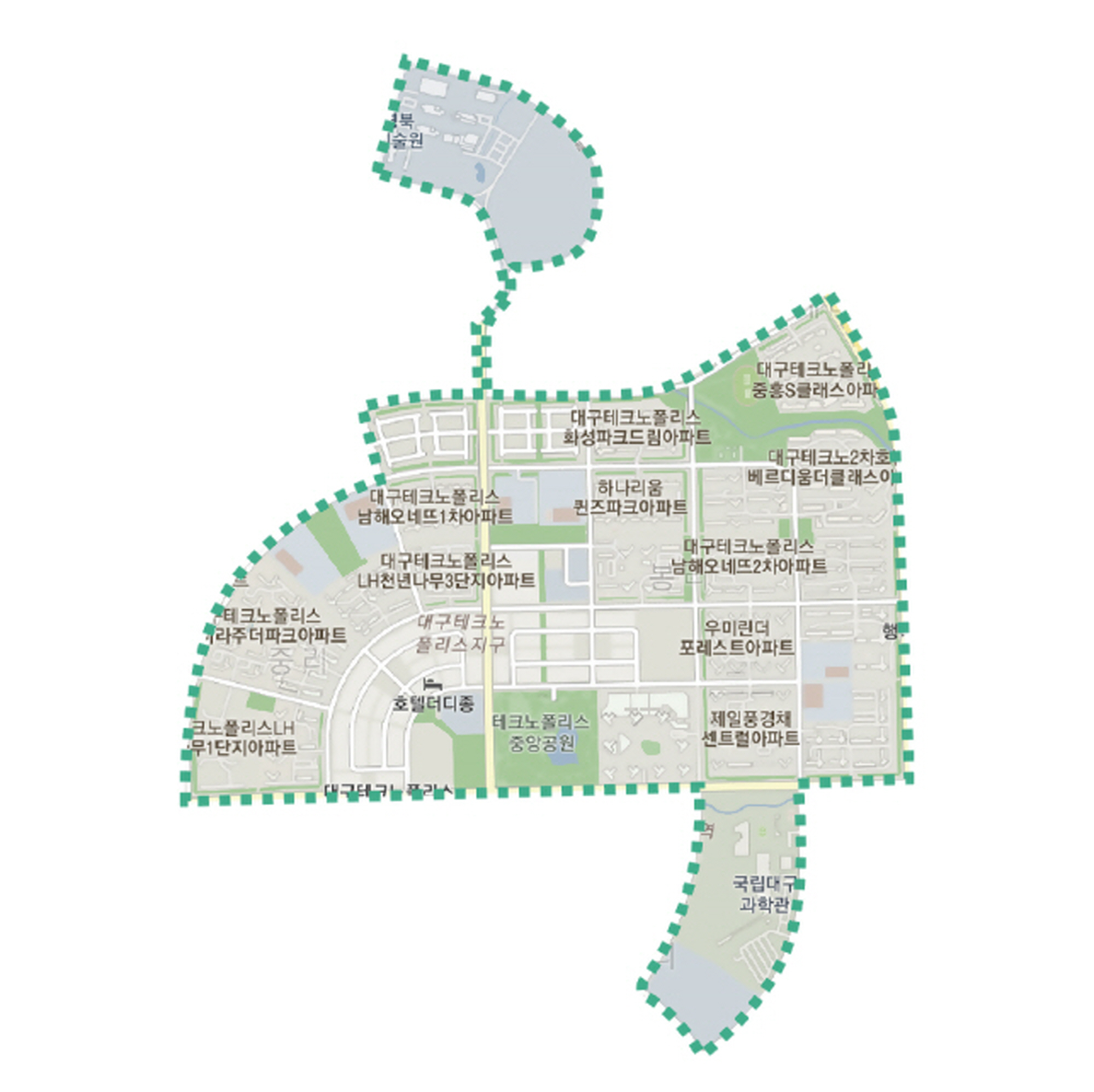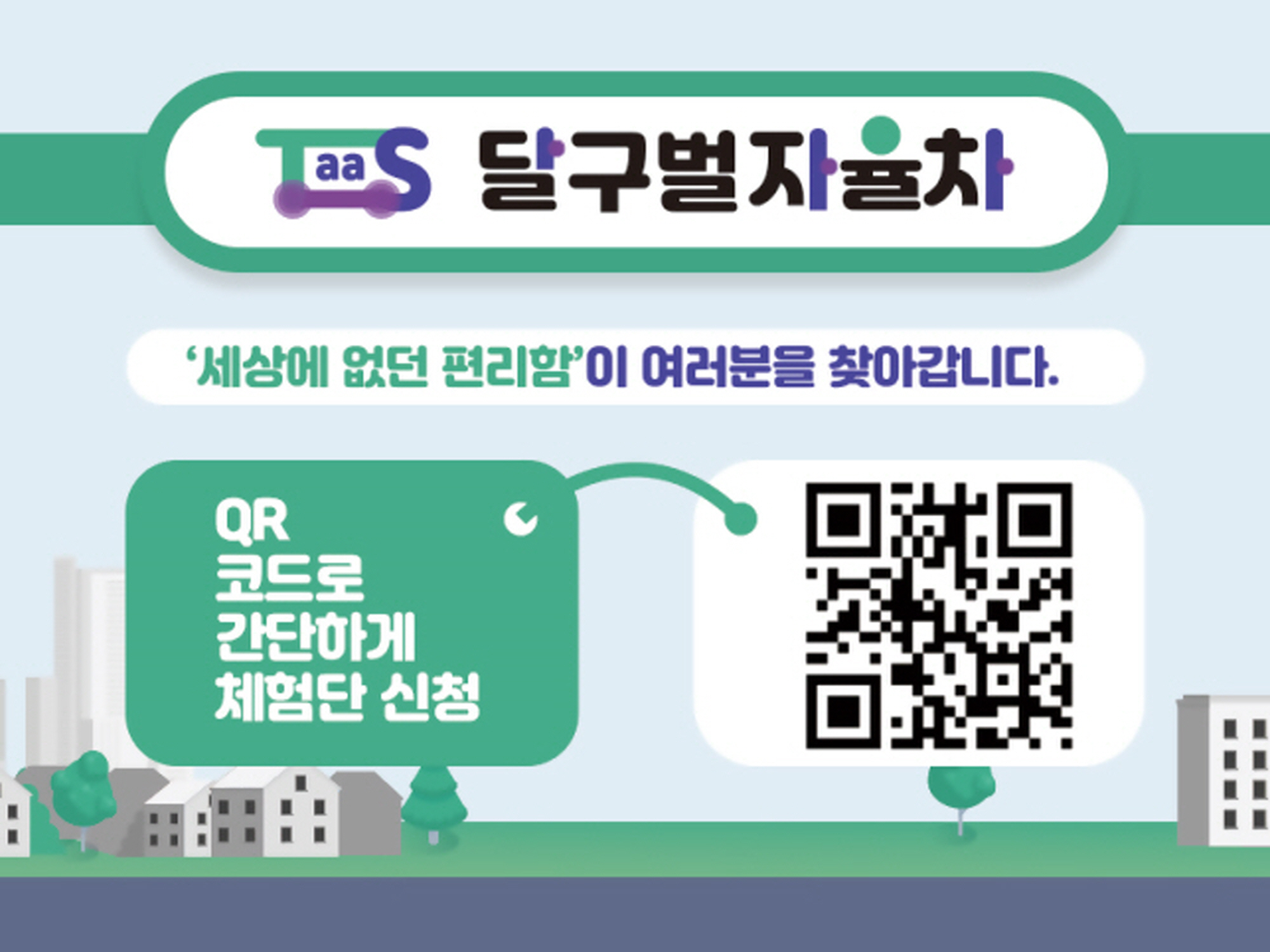
The Autonomous A2Z Consortium, including Kakao Mobility and five other companies (Autonomous A2Z, Korea Automotive Technology Institute, KT, Hyundai Autoever, and New Mobility), is launching the world’s first integrated passenger and logistics ‘Dalgubeol Autonomous Vehicle’ mobility service. The consortium has been preparing for the service launch after being selected as the final business operator in the Ministry of Land, Infrastructure and Transport’s second ‘Autonomous Driving Mobility Service Business’ application.
The ‘Dalgubeol Autonomous Vehicle’ mobility service aims to provide free autonomous driving services to residents of Daegu until 2023, starting operations particularly around the Daegu Technopolis.
The ‘Dalgubeol Autonomous Vehicle’ is not just for testing autonomous driving technology; it aims to offer various transportation services. It is the world’s first autonomous mobility service that integrates both passenger and logistics.
In the first year, autonomous DRT (Demand Responsive Transport) services will be offered, focusing on passenger transportation over a 10.6 km area in Daegu Technopolis. In the second year, the operational area will expand to include an integrated demand-responsive autonomous DRT service and robot delivery over a total of 28.2 km connecting Daegu Technopolis, national industrial complexes, and related routes.
Beginning today, selected individuals who sign up in advance can enjoy free rides in three autonomous vehicles across all areas within the service zone around Daegu Technopolis, operational on weekdays (Monday to Friday) from 2 PM to 8 PM. Moreover, a trained safety officer will be onboard the driver’s seat to manage emergency situations.
Passengers can apply for vehicle rides by scanning a QR code on online/offline promotional channels or clicking a banner, then call for a vehicle through the dedicated app ‘Kakao T’. They can also check the real-time status of their autonomous mobility rides using the app.

This mobility service involves Kakao Mobility and the principal organizer Autonomous A2Z, with participation from leading technologies in the autonomous mobility sector, including Korea Automotive Technology Institute, KT, Hyundai Autoever, and New Mobility.
Autonomous A2Z will be producing and operating a total of 8 Level 4 autonomous vehicles in this project. Three transport autonomous vehicles will be deployed in the first year, followed by five additional passenger and transport autonomous vehicles in the second year. Based on verified technologies with the highest autonomous driving demonstration distances in South Korea, they plan to apply safety and reliability measures to the integrated passenger/logistics vehicle platform technology for delivery mobility.
Each vehicle is equipped with four lidars, five A2Z vision cameras, and one front radar, enabling it to recognize surrounding objects and road environments. Together with smart infrastructure on the road and an autonomous driving control center, it aims to provide safer autonomous driving services.
Kakao Mobility will be responsible for planning and building the integrated passenger/logistics mobility service, and providing real-time information on how autonomous vehicles perceive their surroundings through a passenger-friendly sensor view (AVV – Autonomous Vehicle Visualizer). Kakao Mobility continues to enhance foundation technologies necessary for commercializing autonomous driving services, leveraging its strong platform capabilities built through its leading mobility platform, ‘Kakao T’.
KT will provide OBU terminal/RS infrastructure and C-ITS services, while Hyundai Autoever focuses on building autonomous driving C-ITS infrastructure. Korea Automotive Technology Institute will manage the construction of the autonomous driving control system, and New Mobility will operate three delivery robots while providing autonomous robot delivery services.
The Autonomous A2Z Consortium intends to go beyond merely demonstrating technology in this project, aiming to unveil new paradigms of ‘user-acceptance centered demonstrations’ that can explore areas where autonomous driving technology enhances everyday convenience, implementing them as services and developing necessary technologies for commercialization to establish a robust autonomous driving ecosystem.
Han Ji-hyung, CEO of Autonomous A2Z, stated, “With the full support from the Ministry of Land and the city of Daegu, we are pleased to present the world’s first integrated autonomous service for passenger logistics. This project holds significant meaning and implications.” He added, “We will strive to ensure this service provides the safest and most convenient autonomous mobility experiences for citizens in Korea.”
Jang Sung-wook, Vice President of Kakao Mobility’s Future Mobility Research Institute, emphasized, “This ‘Dalgubeol Autonomous Vehicle’ is a new service model that integrates passenger and logistics services, and we expect it will bring us one step closer to the commercialization of autonomous driving.” He concluded, “We will combine Kakao T’s platform technology and operational capabilities to work with excellent partners, ensuring more citizens can experience autonomous driving services.”

Lee Sang-jin daedusj@autodiary.kr

